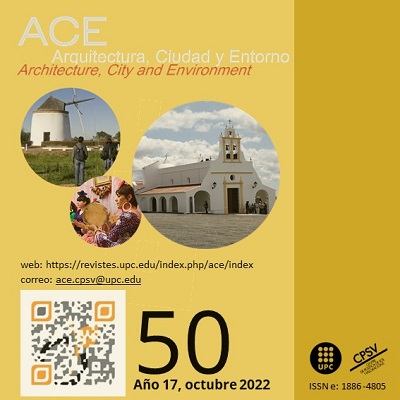Heat Waves in Barcelona City. 1971-2020
DOI:
https://doi.org/10.5821/ace.17.50.11684Keywords:
Extreme climate events, night heat wave, resilience, global warmingAbstract
Extreme events associated with high temperatures impact on the people’s health and their ecosystem, thus the economy. As part of the X-ClimPlan project, this study aims to study heat waves in the city of Barcelona between 1971 and 2020, using the AEMET definition of a heat wave. However that definition refers only to maximum temperatures. High temperatures can have serious consequences in human health, for example, leading to a heat stroke, but it is during nighttime heat, where the inability to rest can worsen respiratory and cardiovascular diseases that cause premature deaths. For this reason, the study differentiates between daytime and nighttime heat waves. Given that the urban climate presents a spatial variation, the research starts with the information provided by four weather stations: Fabra Observatory, CMT, Raval and Airport, and proposes an OLS model for the four stations, considering the year, month and calendar day (cd) as explanatory variables. Even though the temperature in all stations increase, there are differences depending on the location. The results explain and confirm that the process of global warming above 2°C, both in maximum and in minimums, is already a reality in Barcelona. The results also demonstrate a marked difference in extreme heat events between different urban locations; suggesting sea proximity, altitude, different urban density and the quantity and quality of urban greenery have a determining effect on resilience to extreme events.
Downloads
Published
Issue
Section
License
| INTELECTUAL PROTECTION CRITERIA |
At this moment, it is count with the "Oficina Española de Patentes y Marcas", while global protection it is being processed by the World Intelectual Property Organization (OMPI/WIPO). Nevertheless the International Standard Serial Number Office (ISSN) has given the following numbers ISSN: 1886-4805 (electronic version) and 1887-7052 (paper version). All articles will be peer reviewed, using double blind reviewing. |
| COPYRIGHT |
The article contents and their comments are authors exclusive liability, and do not reflect necessarily the journal editor commitee's opinion. All ACE published works are subject to the following licence CC BY-NC-ND 3.0 ES http://creativecommons.org/licenses/by-nc-nd/3.0/es/ It implies that authors do not hold nor retain the copyright without restrictions but only those included in the licence. |





































